How Google Search’s Engine Works & How to Get on Page 1
Dec 11, 2024
Written by Casey Bjorkdahl

Casey Bjorkdahl is one of the pioneering thought leaders in the SEO community. In 2010, Casey co-founded Vazoola after working for a Digital Marketing Agency for five years in New York City. Vazoola is now one of the fastest growing and most widely recognized SEO marketing firms in the country.
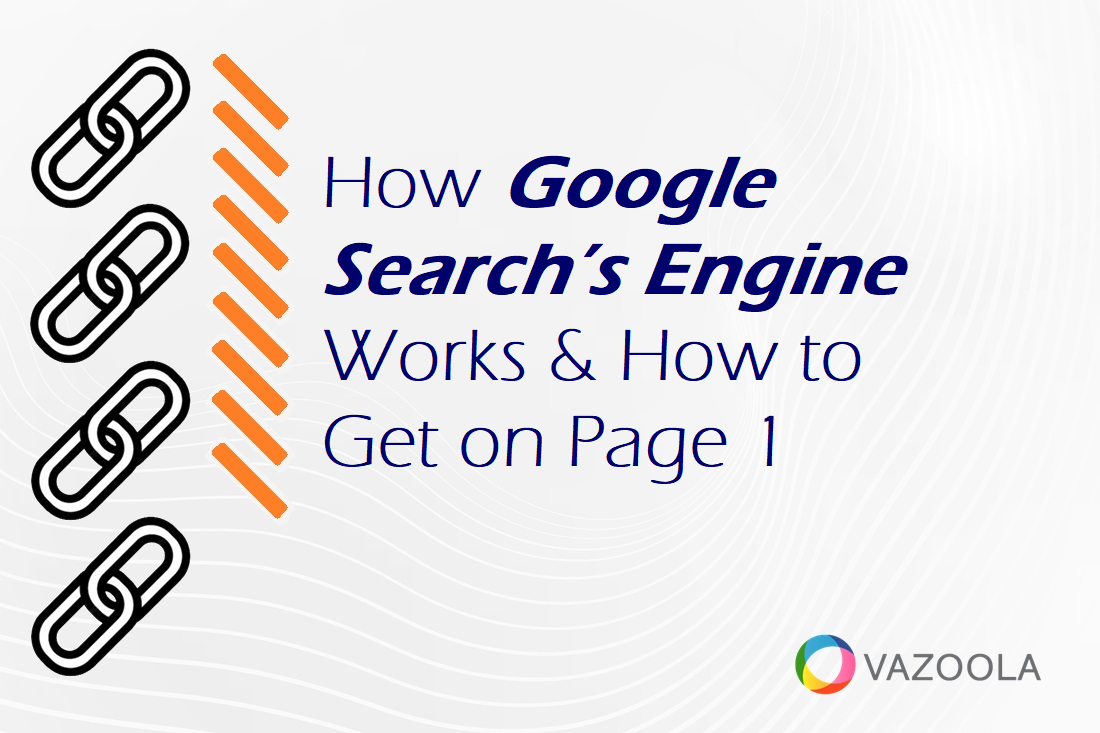
Visibility can make or break a business.
Every day, Google processes more than 8.3 billion searches, making it the go-to tool for people seeking products, services, and answers.
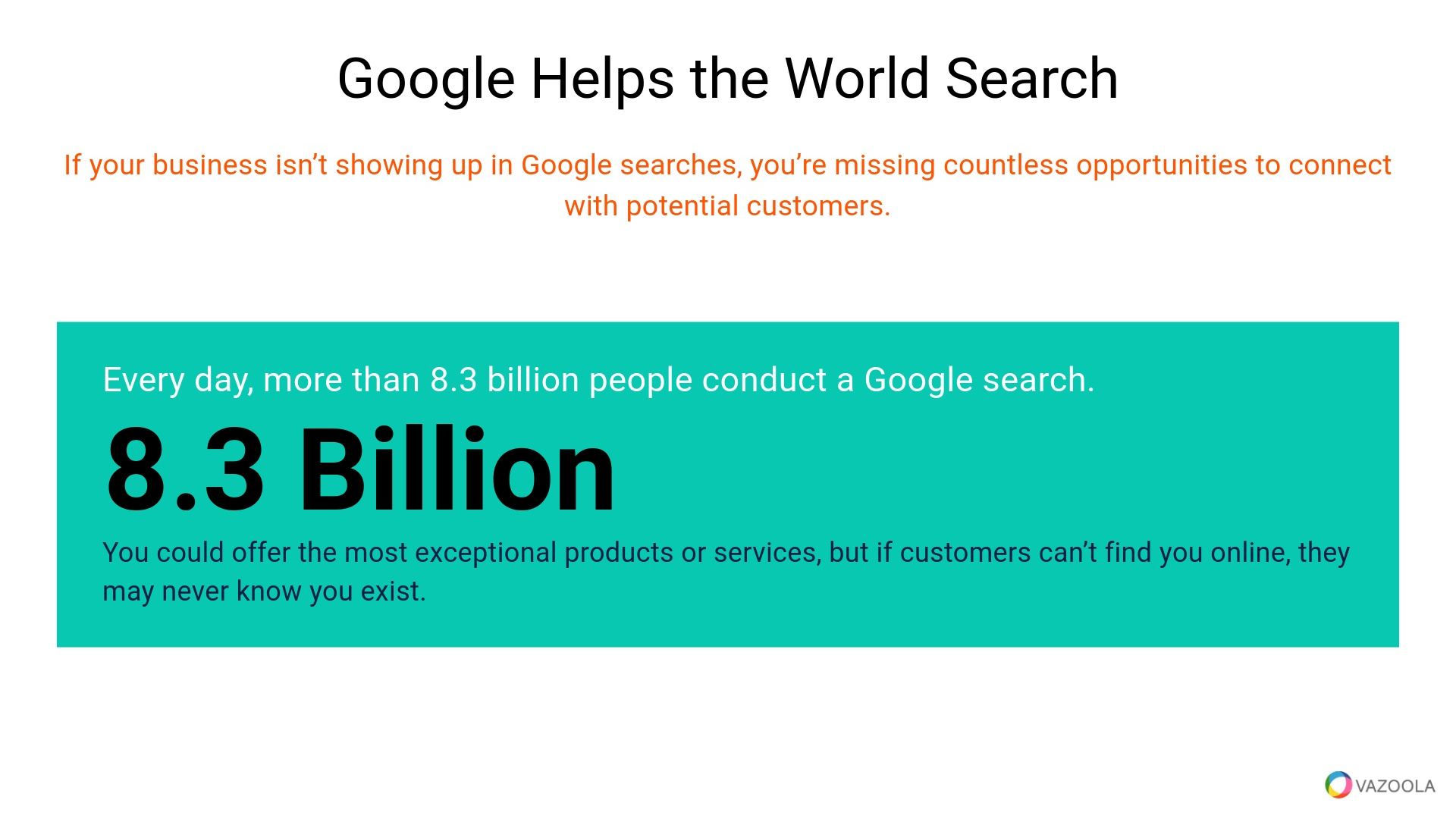
If your business isn’t showing up in those searches, you’re missing countless opportunities to connect with potential customers. You could offer the most exceptional products or services, but if customers can’t find you online, they may never know you exist.
When was the last time you searched for something online?
Like most people, you probably typed your query into Google and clicked on a result within seconds. Understanding how Google works is critical to ensuring your business appears where it matters most—on the search results page.
Key Takeaways About Google Search Engines
-
Google uses crawling, indexing, and ranking to organize and deliver search results. Knowing how these processes work helps you optimize your website for better visibility.
-
Factors like quality backlinks, fresh content, keywords in titles and headings, and multimedia elements like images and videos all influence your search engine ranking on search engine results pages.
-
Regularly update content, target the right keywords, improve page loading speed, and ensure proper website navigation to enhance search engine visibility. Avoid relying solely on AI-generated content without adding originality or depth.
-
SEO is an ongoing process. Monitor your rankings strategically and refresh outdated content to stay competitive.
Table of Contents
What Is the Goal of Google Search Engine?
What is a search engine, anyway? And what’s the point of Google?
If you run a business, your goal is to meet the needs of your customers as best you can. That way, you convince your customers to come back and use your services again. Google search engines work the same way.
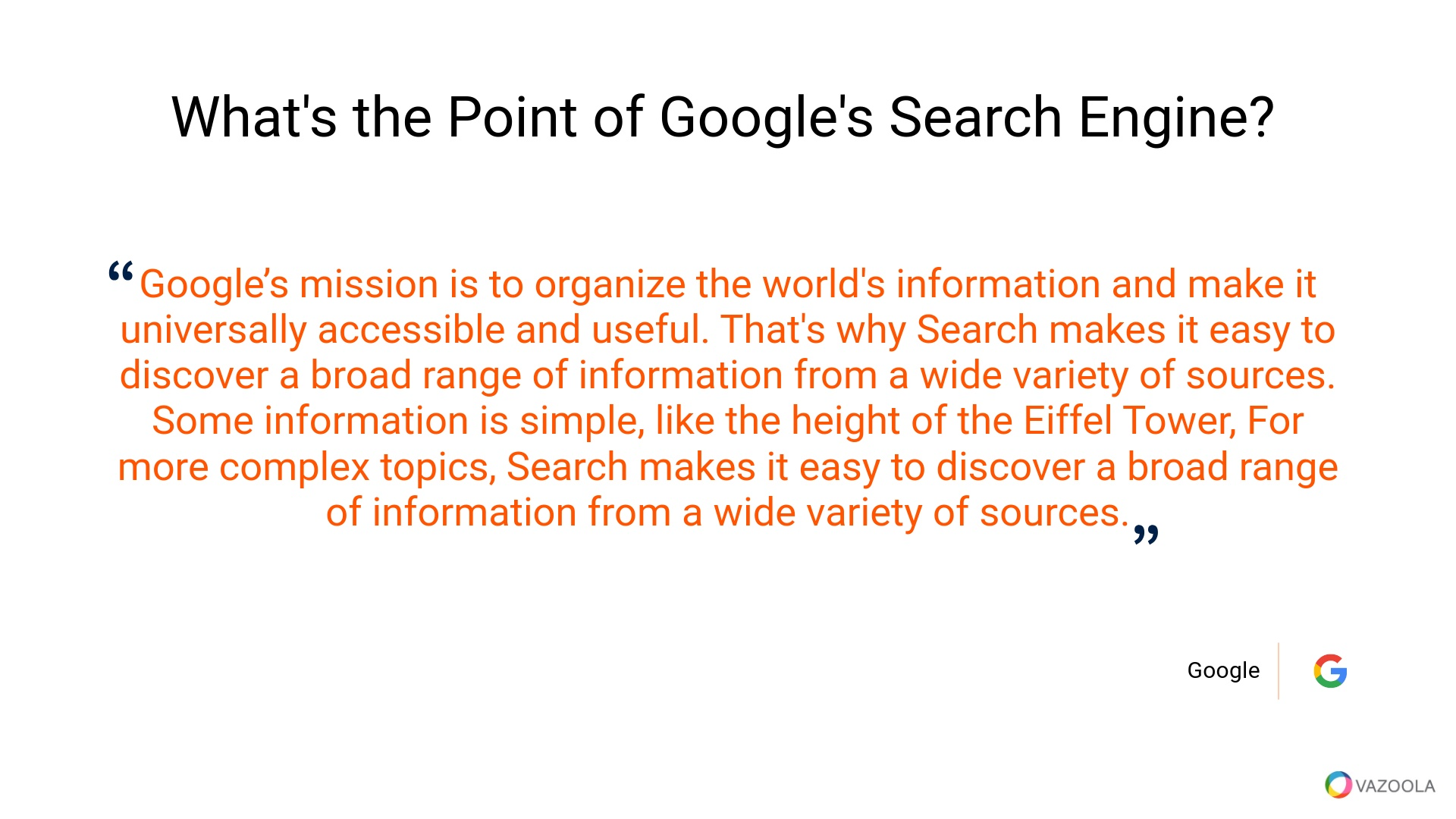
If you are wondering, “How does Google work,” remember that the goal of Google is to meet the needs of its customers. Otherwise, its users are simply going to go elsewhere. Therefore, the goal of Google is to display results it believes are most relevant to you or to your audience. Ideally, you are happy with the results you see on your search engine results page every time.
Google clearly state’s its purpose is to maximize access to information.
“Google’s mission is to organize the world's information and make it universally accessible and useful,” Google explains on its web page. “That's why Search makes it easy to discover a broad range of information from a wide variety of sources.”
“Some information is simple, like the height of the Eiffel Tower,” the search giant continues in its explanation. “For more complex topics, Search is a tool to explore many angles so you can form your own understanding of the world.”
So, how can you improve your web search engine results rankings? There are several key points to keep in mind.
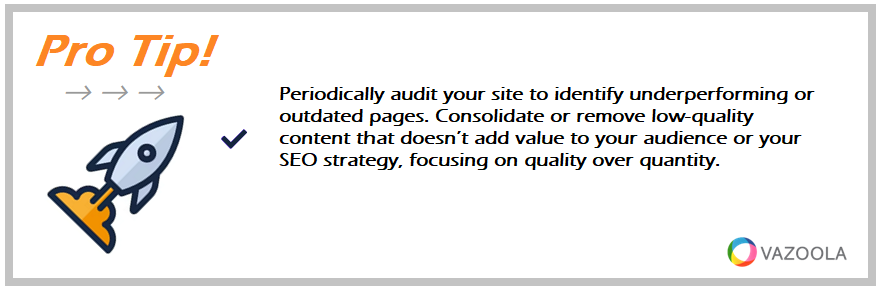
Periodically audit your site to identify underperforming or outdated pages. Consolidate or remove low-quality content that doesn’t add value to your audience or your SEO strategy, focusing on quality over quantity.
Get Your Website on Google: How It Works
Google relies on three key processes to deliver search results: crawling, indexing, and ranking.
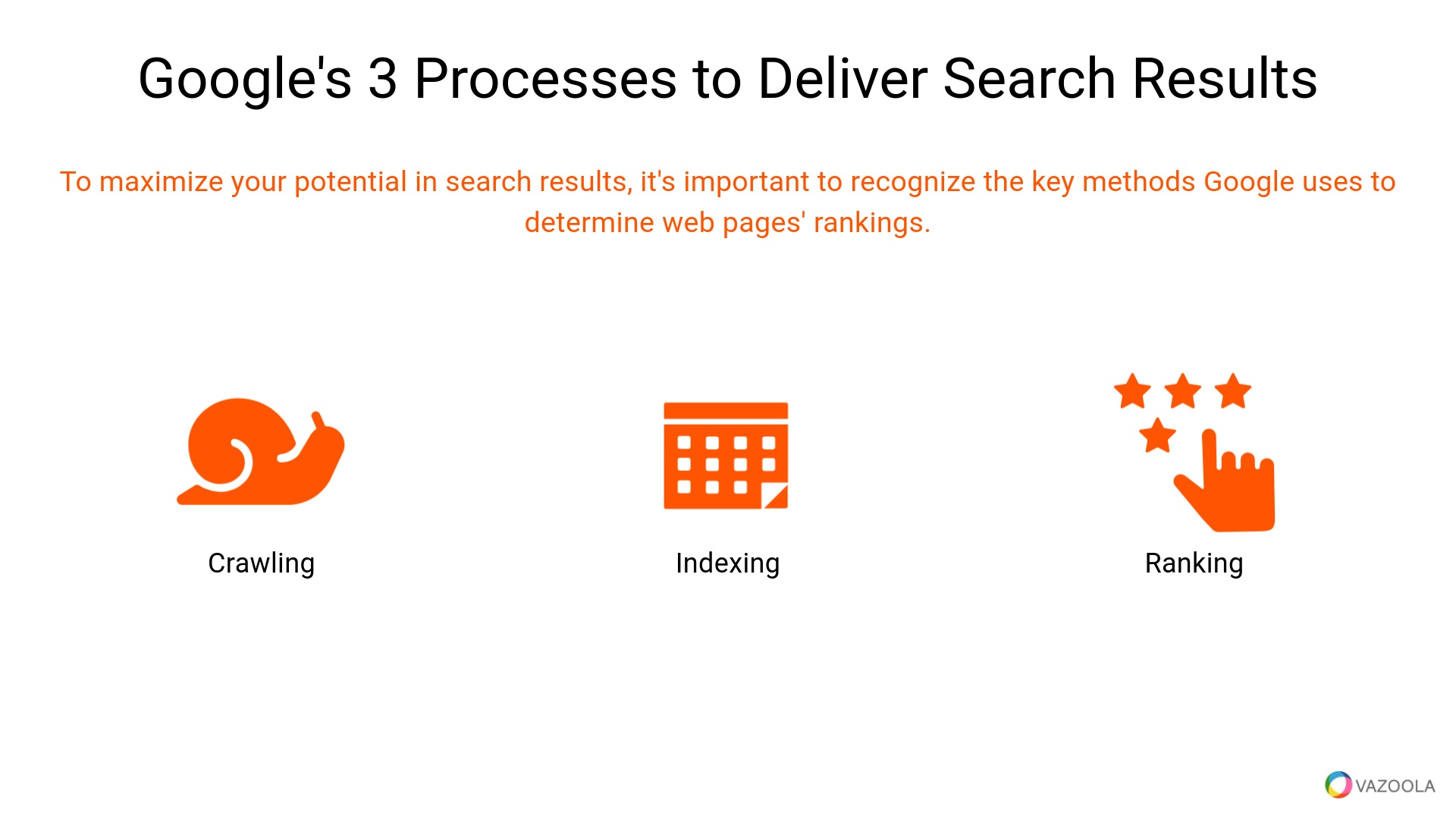
Crawling involves automated bots or search engine spiders scanning the web to discover and revisit content. Indexing organizes this content into Google’s massive database by analyzing keywords, metadata, and relevance. Meanwhile, ranking determines the order in which results appear, using algorithms that factor in quality, relevance, and user experience.
Once Google has indexed a page, it organizes information on search engine results pages. These pages are designed to provide quick and accurate answers to user queries.
Beyond standard blue links, SERPs feature elements like Featured Snippets, Knowledge Panels, and local business listings, tailored to match search intent. By understanding these processes, businesses can better optimize their content to improve visibility and reach.
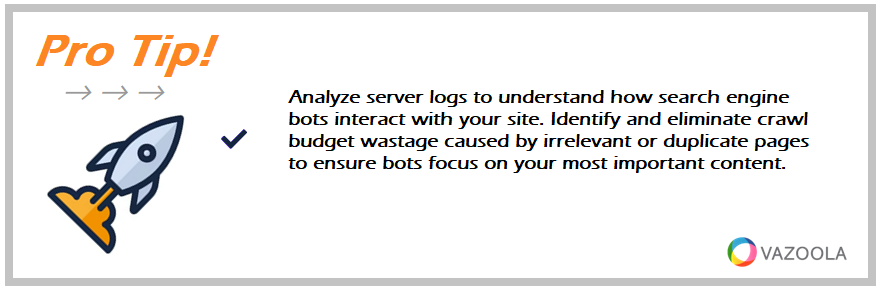
Analyze server logs to understand how search engine bots interact with your site. Identify and eliminate crawl budget wastage caused by irrelevant or duplicate pages to ensure bots focus on your most important content.
Now, How to Get on the Front Page of Google …
What you really want to know is, how to get on the first page of Google, right? We know why Google’s “front page” is so critical to online business success: Few people click beyond the first page of search results; click-through-rate studies range from less than 1% to around 4% of users scroll past page 1.
Therefore, if you want your customers to find you, that is where your website has to show up.
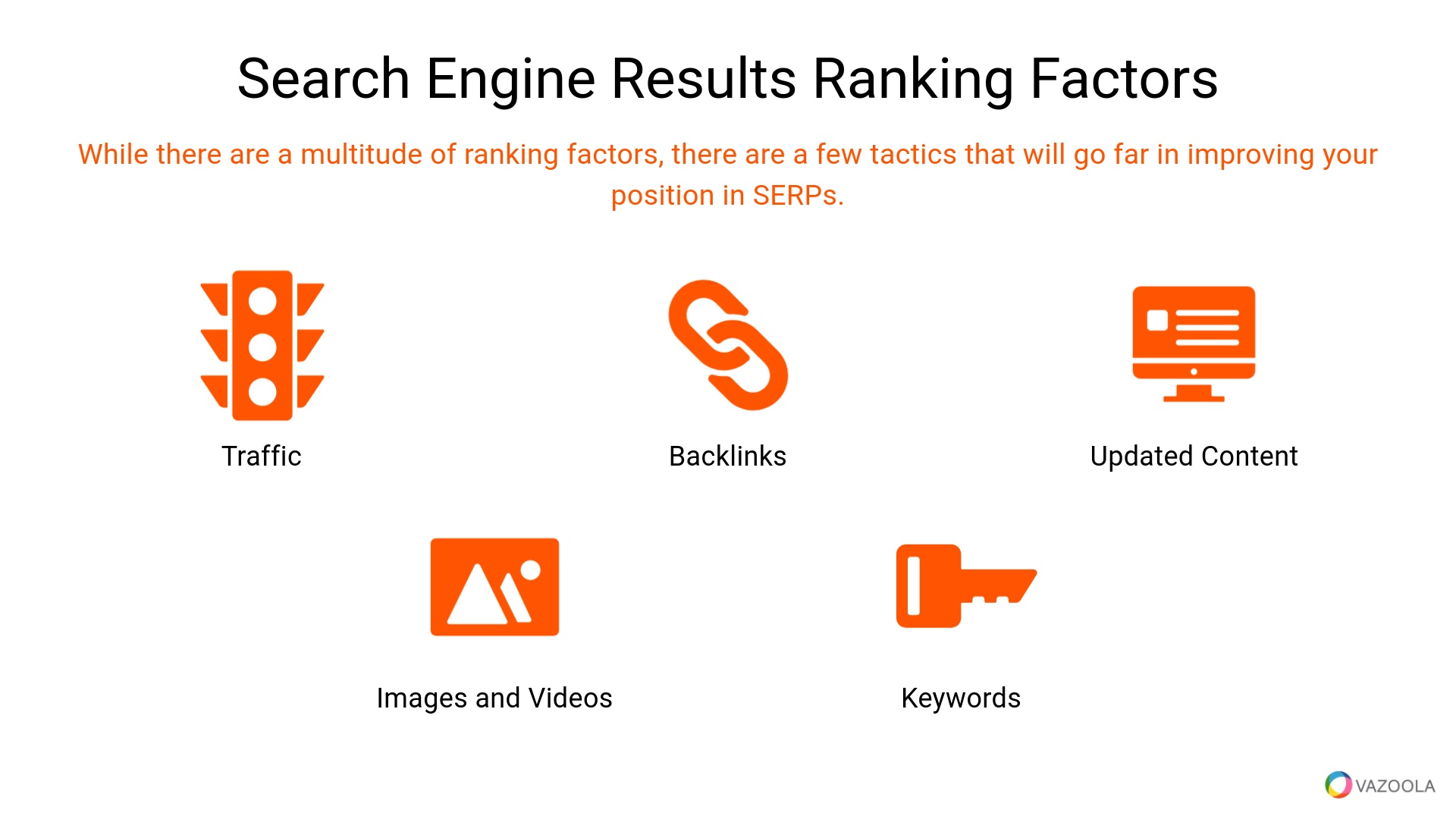
How can you improve your ranking? It is important to understand how search engines rank results. These include:
-
Web search engines take a look at websites that already have a lot of traffic. If websites have a lot of traffic, they must be sharing good content. Those websites will have a higher search engine rank.
-
Search engines crawl for the backlinks to your website. The more you have and the higher quality they are the more favorable your site will look in the eyes of the search engines.
-
Search engines look for websites that post content regularly. Websites that update their content regularly are still active, making them more relevant.
-
Search engines look for images and videos. People prefer images and videos to text. These websites ranked higher.
-
Of course, search engines also look for keywords as well. These keywords, particularly in headings and titles, let search engines know what the website is about.
These are just a few of the many ways search engines rank results.
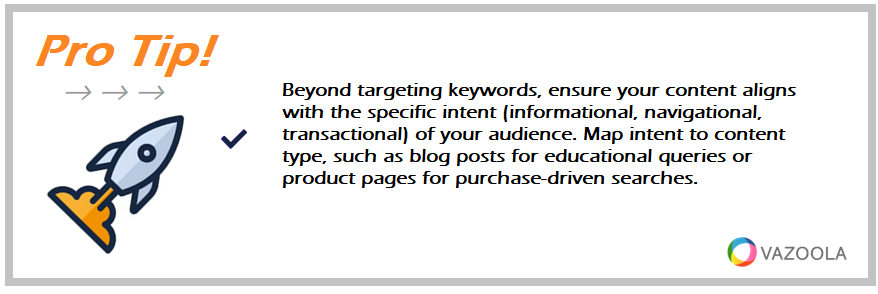
Beyond targeting keywords, ensure your content aligns with the specific intent (informational, navigational, transactional) of your audience. Map intent to content type, such as blog posts for educational queries or product pages for purchase-driven searches.
How Do You Improve Search Engine Visibility?
What is search engine visibility, and how do you improve it?
In short, think of search engine visibility as fleeting. You and your competitors are vying for the front page of Google search, and Google is continuously updating the way it indexes and delivers search results. In other words: Don't get too comfortable with your page 1 results.
Google’s search engine ranking position can fluctuate based on a variety of factors, including when Google makes core updates or smaller modifications to its algorithm. That means sometimes your search engine rankings might drop.
You can monitor your SEO efforts with tools like a search engine visibility checker with tools like Ahrefs or SEMrush.
What happens if your Google rankings drop? How can you help prevent these losses in search engine results?
Best practices for rank recovery are the same tactics used to improve search engine visibility. In essence, you want to create content that Google loves.
But what sorts of features make Google love some content and not others? The website search engine prefers a few factors, including fresh content, quality links, fast page loading times, contact information, and social media engagement.
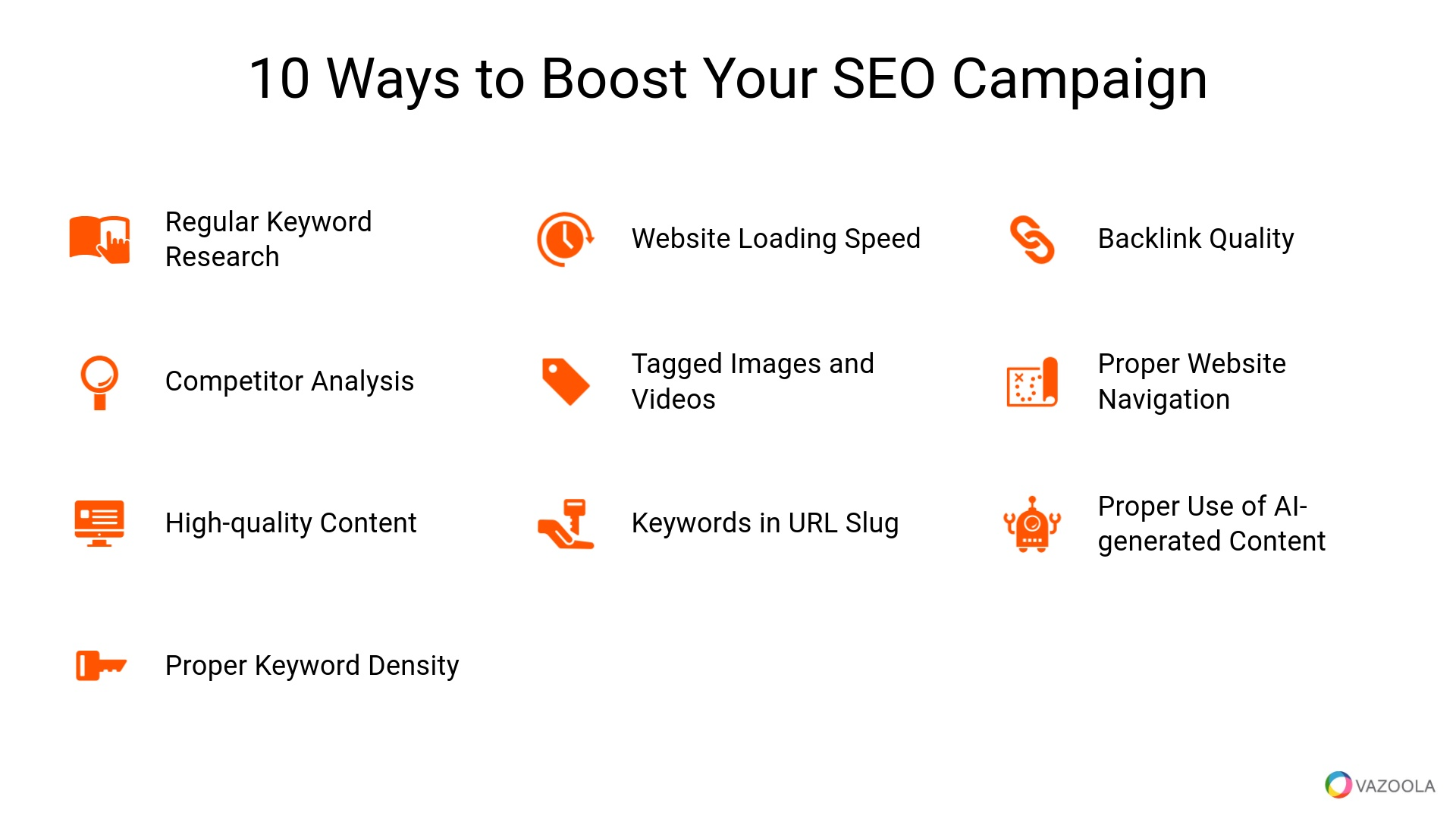
10 best practices for improving and maintaining your organic search results
You can improve your search engine results ranking via search engine optimization. Even though this is less expensive than PPC, it also takes longer. A few ways you can improve your SEO campaign include:
-
Conduct keyword research regularly and target the right keywords.
-
Take a look at your competitors, particularly those who rank ahead of you, and emulate them.
-
Post high-quality content on a regular basis.
-
Make sure you have the right keyword density on your pages.
-
Ensure your website always loads quickly.
-
Tag your images and videos appropriately.
-
Include keywords in your URL slug.
-
Monitor the quality of your backlinks.
-
Improve your website navigation with menus and internal links.
-
Avoid AI-generated content if it lacks depth, originality, or appears repetitive.
If you execute a strong SEO campaign, you can improve your search engine results rankings and boost your online visibility.
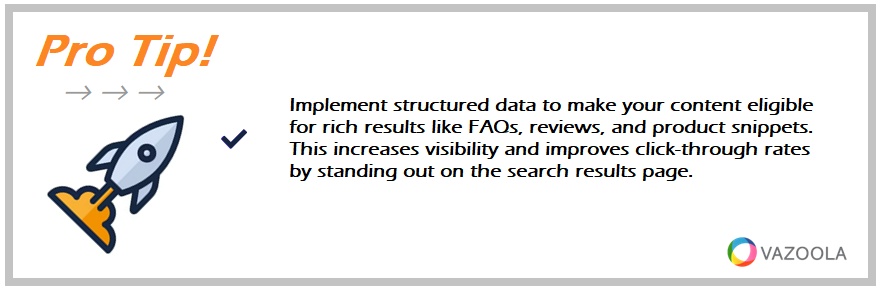
Implement structured data to make your content eligible for rich results like FAQs, reviews, and product snippets. This increases visibility and improves click-through rates by standing out on the search results page.
Optimization is Not a One-and-Done Strategy
Now that you know the answer to, “How do search engines work,” we can answer, “How do you know if your SEO strategy is working?”
SEO requires consistent effort and ongoing adjustments. Rankings can fluctuate due to algorithm updates, competitor actions, or changes in user behavior.
Monitoring your rankings is essential to understand where your site stands, but it’s important not to obsess over daily metrics. Instead, focus on key performance indicators that align with your business goals.
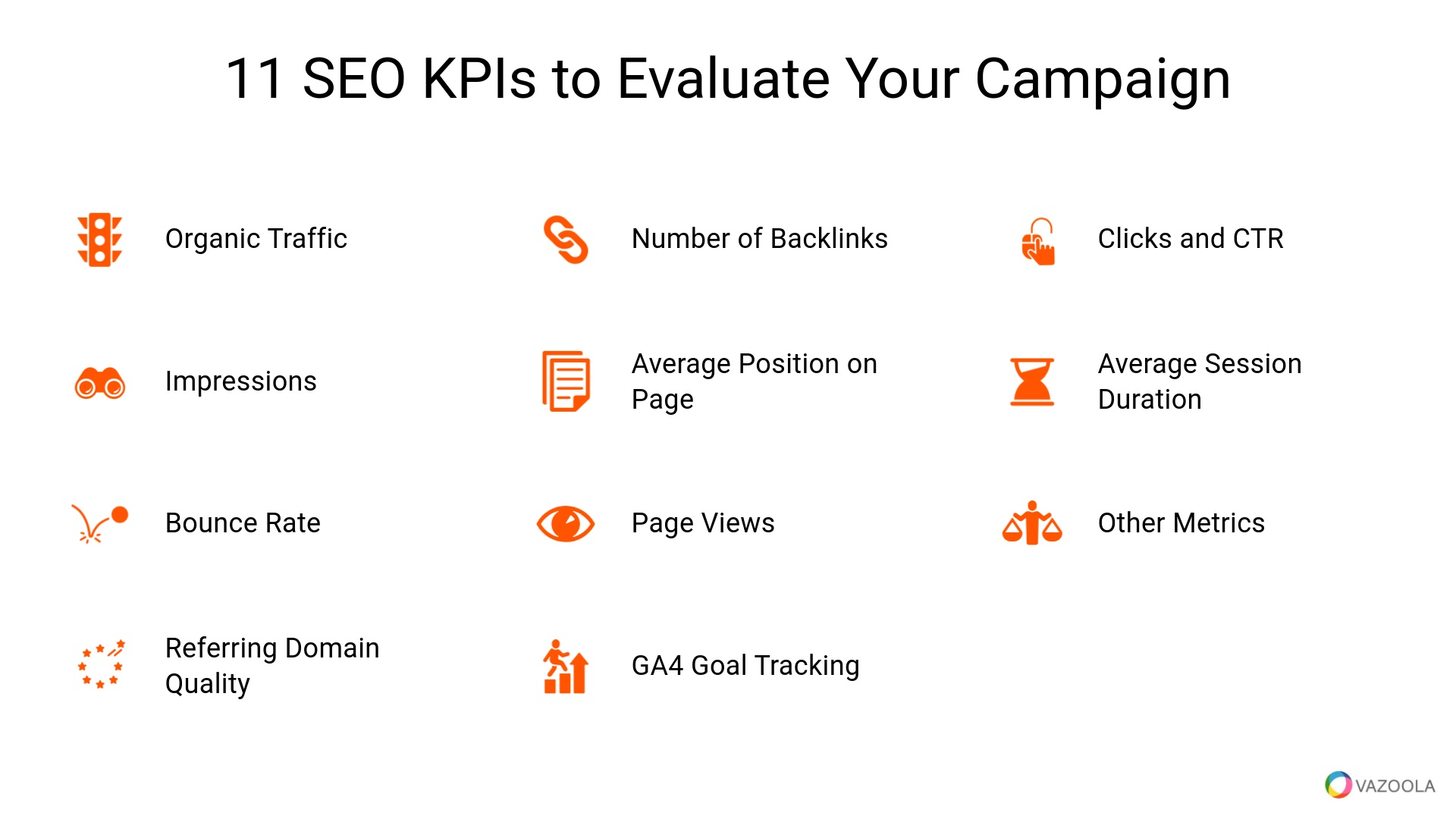
Vazoola’s guide to SEO KPIs offers valuable insights into which metrics matter most and how to track them effectively.
Regularly reviewing and refreshing your content is another critical aspect of maintaining SEO performance. High-quality content can lose relevance over time, which impacts rankings.
A content refresh strategy can help you keep your pages competitive by updating outdated information, improving readability, and ensuring alignment with search intent. By combining monitoring with strategic updates, you can sustain long-term growth without being overwhelmed by the ever-changing realm that is search.
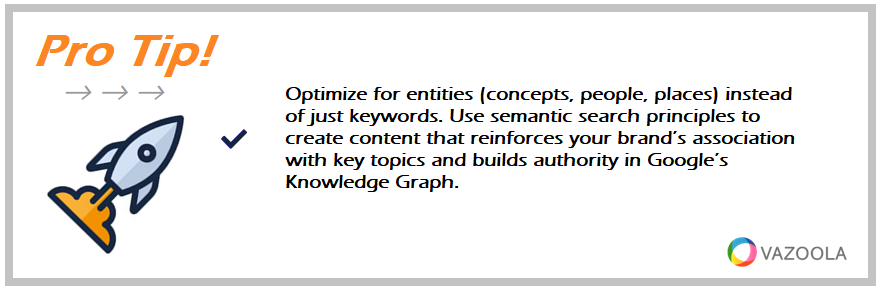
Optimize for entities (concepts, people, places) instead of just keywords. Use semantic search principles to create content that reinforces your brand’s association with key topics and builds authority in Google’s Knowledge Graph.

